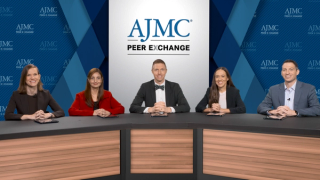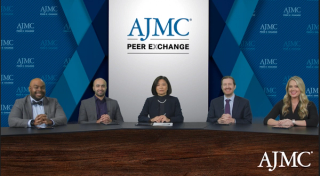
Clinical
Latest News


Glucocorticoids Reduce Comorbidity Frequency in Adults With DMD, Study Finds
Latest Videos

CME Content
More News
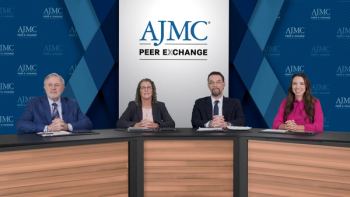
Medical experts identify key stakeholders within health plans who collaborate in the decision-making process for coverage, access, and benefit design related to prescription digital therapeutics.

Paul Jeffrey, PharmD, presents the findings of a study, which investigated patient engagement and clinical outcomes associated with the use of prescription digital therapeutics (PDTs) in the treatment of substance use disorders, and discusses the need for further research to advance the efficacy and value of PDTs in this field.
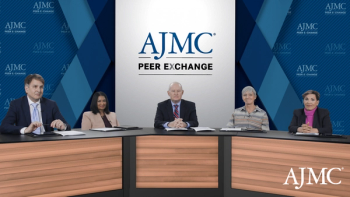
The expert panel offers comprehensive insights on the patient journey for people with Alzheimer disease, highlighting symptoms, challenges, and the diagnostic process.

The panel provides an overview of genetic factors associated with Alzheimer disease and the genetic mutations that contribute to the pathophysiology of the disease.

1) A medical urologist discusses the rationale and design of the SunRISe-1 phase 2 trial, which evaluates the combination of intravesical TAR-200 and systemic cetrelimab, as well as the TAR-200 and cetrelimab monotherapy arms, in patients with Bacillus Calmette-Guérin (BCG)-unresponsive high-risk non-muscle-invasive bladder cancer (HR NMIBC), focusing on key efficacy and safety endpoints.

Neal Shore, MD, FACS, discuss the key efficacy outcomes reported for nadofaragene firadenovec (ADSTILADRIN) in the phase 3 trial for patients with Bacillus Calmette-Guérin (BCG)-unresponsive non-muscle-invasive bladder cancer (NMIBC) and compare these long-term results to other bladder-preserving therapies in this population.

Study authors shared late-breaking data in a session on clinical trial results in pulmonary medicine at the American Thoracic Society 2024 International Conference.

Parental e-cigarette use was associated with an increased risk of pediatric atopic dermatitis (AD) in a new study.

From 2015 to 2020, the number of patients opting for valve-in-valve transcatheter aortic valve replacement (ViV-TAVR) over redo surgical aortic valve replacement (SAVR) rose significantly, from 35.3% to 62.5%.

The CDC has asked local and state health officials to maintain peak-season flu surveillance operation levels over the summer to watch for any signs of human-to-human spread of the H5N1 bird flu virus; the drug industry’s top lobbying group faced thorough questioning at a Senate Judiciary Committee hearing about the impact of patent system abuse on high prescription drug prices; FDA staff reviewers have raised concerns that Guardant Health’s colorectal cancer (CRC) blood test may fail to detect precancerous tumors.

Women who used a dolutegravir-based regimen had less mother-to-infant transmission of HIV compared with those on efavirenz-based regimens.

Ravin Ratan, MD, MEd, of The University of Texas MD Anderson Cancer Center, explains the origins of soft tissue sarcomas within the body—which account for 1% of cancers in adult patients—how they are classified, and how they differ from organ-based cancers.


Psychological well-being should be considered in the management of psoriasis, research indicates.
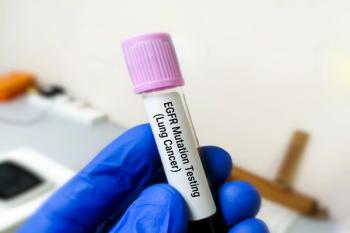
Investigators continue to seek more information on how to optimally integrate treatment with tyrosine kinase inhibitors (TKIs) into an established concurrent chemoradiotherapy regimen.
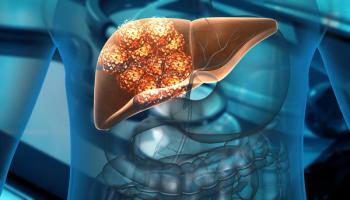
Surgery and chemotherapy significantly improved both overall survival (OS) and cancer-specific survival (CSS) in patients with liver metastases originating from ovarian cancer (OC), who generally face a poor prognosis with a 5-year survival rate of less than 30%.

New data reveal that starting furoate/umeclidinium/vilanterol (FF/UMEC/VI) without delay not only significantly reduces exacerbations and health care costs but also enhances adherence and persistence for patients with chronic obstructive pulmonary disease (COPD) compared with other therapies.

A new report finds secondary immunodeficiency disease (SID) also increases the risk of mortality in patients with B-cell malignancies.

A 77-year-old man had no risk factors for hepatocellular carcinoma (HCC), but he was nonetheless found to have it. Along the way, he was also diagnosed with previously undetected chronic lymphocytic leukemia/small lymphocytic lymphoma (CLL/SLL).

Vamorolone (Agamree) is a first-in-class corticosteroid to treat Duchenne muscular dystrophy (DMD) in patients 2 years and older.

The FDA approved the first 2 biosimilars referencing aflibercept (Eylea). However, patent litigation has left it unclear when the biosimilars will come to market.

During a session at the American Thoracic Society (ATS) 2024 International Conference, experts presented the most impactful data from the last year on acute respiratory distress syndrome (ARDS), childhood asthma, health equity, and lung cancer.

Patients with chronic obstructive pulmonary disease (COPD) and/or preserved ratio impaired spirometry (PRISm) have an increased risk of all-cause and cause-specific mortality, highlighting the need for better understanding of these conditions through increased spirometry data collection.

Patients taking semaglutide for a year saw significant improvements in exercise capacity and lost 2.9% more body weight compared with patients taking placebo.

Certain genes have been linked to significant weight reduction in obesity treatment; research boosts plaintiffs’ cases against Johnson & Johnson for their talc-based baby powder; proposed legislation aims to address concerns following Alabama Supreme Court ruling on embryos.






